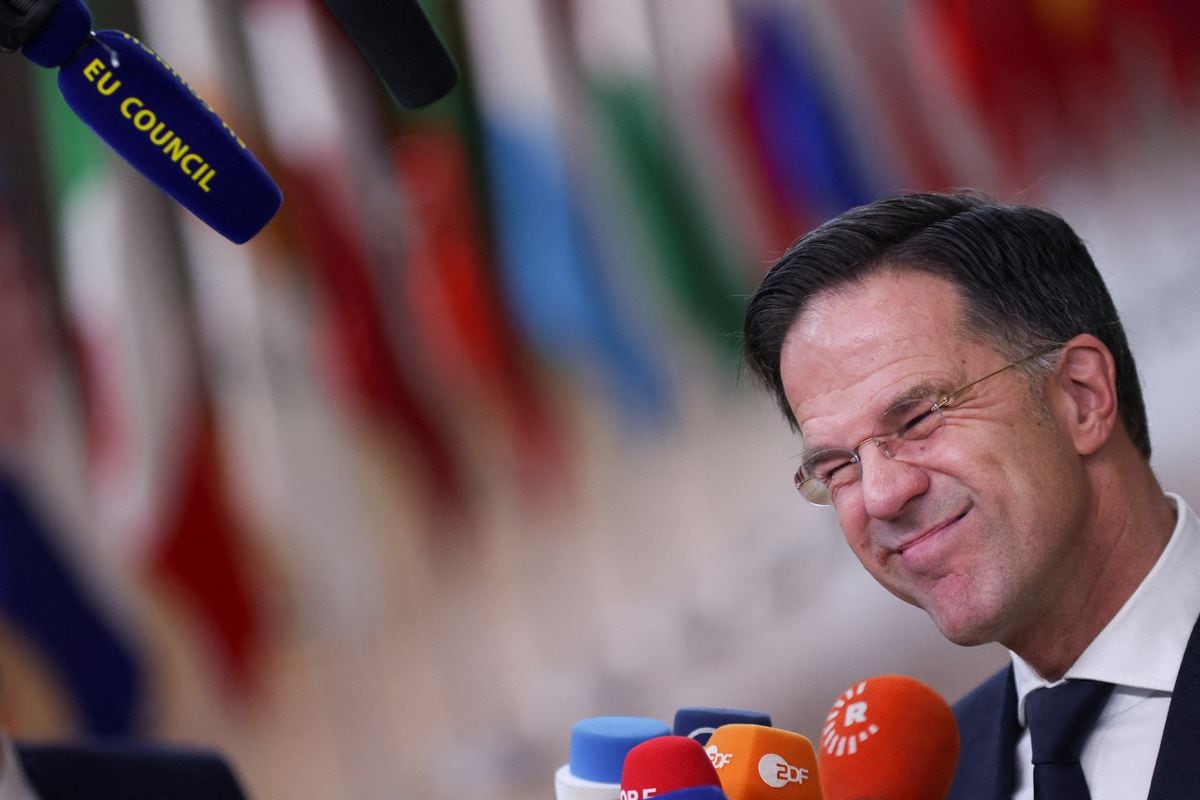NATO is looking for a new secretary general and Mark Rutte, acting prime minister of the Netherlands since the last elections on November 22, is the main (and for now only) candidate to succeed the Norwegian Jens Stoltenberg, whose term ends on November 1 October.
The Dutchman has many possibilities, but negotiations to agree on a new coalition in his country have stalled.
If NATO approves his appointment without there yet being a Dutch Government, the problem would be political: there is no precedent in the country's recent history for a head of the Executive to leave office under these conditions with the instability that this may entail.
Rutte accumulates support to replace Stoltenberg.
Only the Dutch politician has openly run for office and has the support of a good majority of the 31 members of the Alliance, including three heavyweights: France, the United Kingdom and the United States.
Although the decision is made unanimously and Hungary and Türkiye have not agreed yet.
“We are facing an unprecedented situation in recent Dutch political history because a prime minister has never left office before another has been appointed,” explains Ingrid Leijten, professor of constitutional law at Tilburg University, on the phone.
“It does not seem that a new coalition will be agreed in the Netherlands anytime soon, so it is possible that if Rutte moves to Brussels he will do so in this context of interim government,” she adds.
“It will not be a legal problem, because the Council of Ministers will be able to appoint a new prime minister without the need for Parliament to intervene,” explains Leijten.
It is possible that another minister — probably from Rutte's party, the right-wing liberals, VVD — will take his place.
“But the real underlying problem is the long process of coalition formation,” comments the professor.
"Dutch governments fall quite easily, and since there are so many parties represented in Parliament it is difficult to reach an agreement quickly."
It is a complex process, without rules that establish “a time limit to close an agreement.”
It is not established that the party with the most votes has to be in the Government or that “or that the prime minister belongs to that winning group,” adds Leijten.
Although a caretaker Dutch government cannot make controversial or far-reaching decisions, it does not ignore the urgency of the current international situation.
“The problem of Rutte's possible departure towards the Alliance will be political, not constitutional,” confirms political scientist Tom van der Meer, from the University of Amsterdam.
In his opinion, the figure of the prime minister has become more important in recent decades, “especially due to the weight of the European Union.”
Hence his increasing visibility.
Rutte announced in July 2023 his retirement from politics, after the breakup of the fourth coalition that he led consecutively since 2010. He said that he would not stand for election again and that he would perhaps opt for teaching.
After a period of relative silence, his name has circulated in Brussels due to his negotiating skills.
He had not closed the door on a position of this kind.
The negotiations to form a new Executive in the Netherlands have returned to square one after almost three months of failed meetings between the four right-wing parties – including the extreme one of Geert Wilders, winner of the elections – that obtained the most votes.
He has appointed a new mediator and has four months to sound out all the parties about the type of coalition they prefer.
On a domestic Dutch level, Van der Meer suggests that it is not so much a question of whether Wilders becomes prime minister.
“It is possible that it will be agreed that the leaders of the parties that agree will remain in Parliament without appearing in the Council of Ministers.
The prime minister could then be an external professional figure,” he points out.
The mandate of the Norwegian Jens Stoltenberg officially ends in October, although NATO wants an appointment sooner, to perhaps separate him from the major EU positions - such as the presidency of the Commission - that will be decided between July and October.
Follow all the international information on
and
X
, or in
our weekly newsletter
.
Subscribe to continue reading
Read without limits
Keep reading
I am already a subscriber
_

